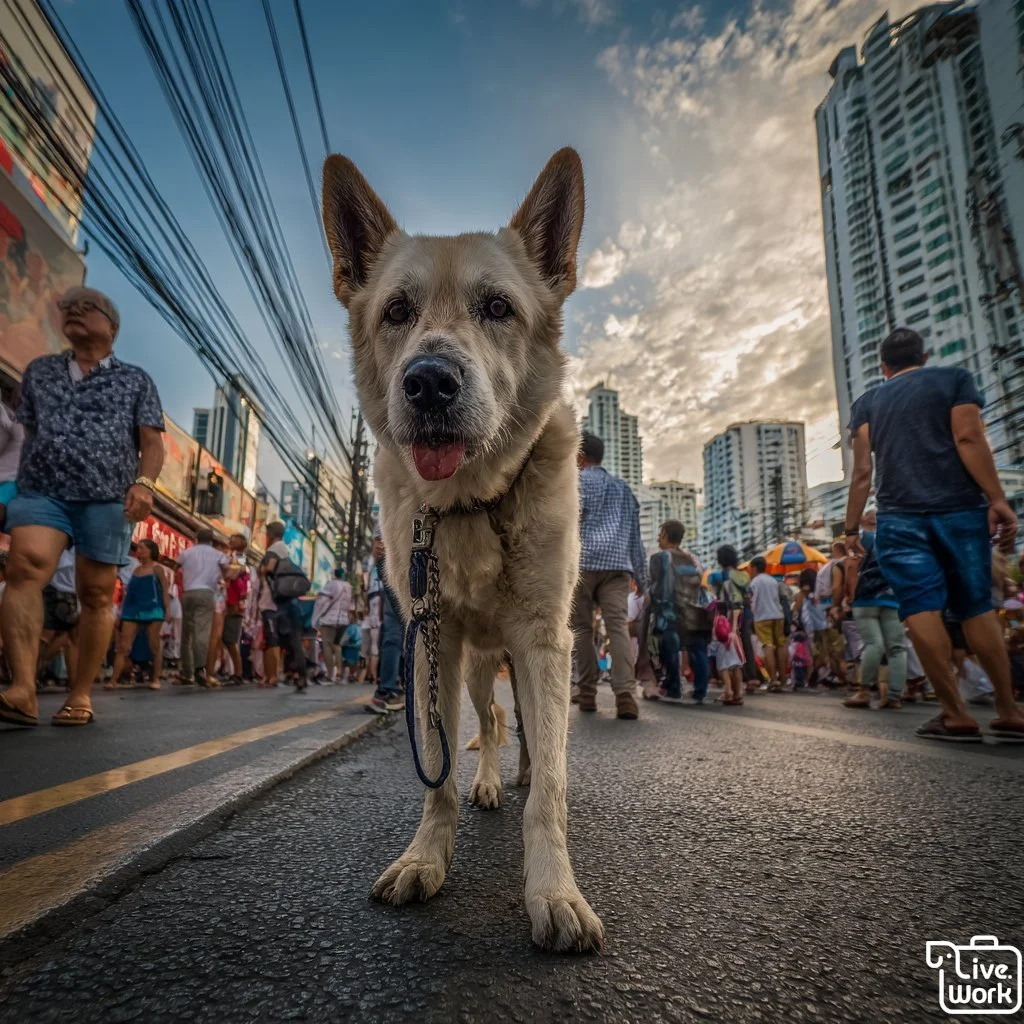Owning a Pet in Thailand: A Comprehensive Guide to Pet Policies and Animal Rules
Owning a pet in Thailand can be one of the most rewarding experiences for animal lovers, but it’s not without its set of responsibilities. Whether you’re a local or an expat, understanding the laws, cultural attitudes, and best practices around pet ownership will ensure your furry, feathered, or scaly friend enjoys a healthy, happy life. This detailed guide will walk you through the essential policies and rules that every responsible pet owner in Thailand should know.
Legal Requirements for Pet Ownership
While owning a pet in Thailand is generally straightforward, certain rules apply, particularly for dogs and exotic animals.
Registration: In many municipalities, especially in Bangkok and other major cities, dogs must be registered with the local administrative office. This process often includes providing proof of vaccination.
Permits for Exotic Pets: Species such as certain birds, reptiles, or endangered animals require special permits under the Wild Animal Reservation and Protection Act.
Import and Export Regulations: If you plan to bring a pet into Thailand or take one abroad, you’ll need to follow quarantine, vaccination, and health certificate requirements set by the Department of Livestock Development (DLD).
Vaccinations and Health Requirements
Vaccinations are not only crucial for your pet’s health but also mandated by law for certain animals.
Rabies Vaccination: Compulsory for all dogs and cats. Certificates are required during registration and travel.
Core Vaccines for Dogs: Rabies, distemper, parvovirus, leptospirosis.
Core Vaccines for Cats: Rabies, feline panleukopenia, calicivirus, herpesvirus.
Health Checks: Annual vet check-ups are strongly recommended to monitor your pet’s overall condition.
Pet Welfare and Care Standards
Thailand has regulations in place to protect animals from neglect and abuse.
Animal Welfare Act B.E. 2557 (2014): This law outlines penalties for animal cruelty, ensuring pets are provided with adequate food, water, shelter, and medical care.
Tethering Laws: While not nationwide, some local regulations discourage prolonged chaining or confinement of animals.
Heat Awareness: Given Thailand’s tropical climate, pet owners must ensure animals are not left in hot cars or exposed to extreme heat without shade and water.
Living Arrangements and Restrictions
Not all housing in Thailand is pet-friendly.
Condo Rules: Many condominiums prohibit pets altogether or have restrictions on size, breed, or type. Always check building policies before moving in.
Rental Agreements: Landlords may impose their own rules, so ensure pet clauses are clearly stated in the contract.
Outdoor Space: In urban areas, access to safe, pet-friendly outdoor areas can be limited.
Community Etiquette for Pet Owners
Being a responsible pet owner also means respecting neighbors and public spaces.
Leash Laws: Dogs should be kept on a leash in public areas.
Clean-Up Rules: Owners must clean up after their pets in public places.
Noise Control: Excessive barking or loud animal sounds can lead to complaints, especially in shared housing communities.
Emergency and Veterinary Care
Thailand offers a range of veterinary services, from basic clinics to specialized animal hospitals.
24-Hour Animal Hospitals: Found in major cities like Bangkok, Chiang Mai, and Phuket.
Mobile Vets: Increasingly popular in suburban and rural areas.
Pet Insurance: Available from several Thai providers, covering accidents, illnesses, and sometimes routine care.
Advocacy and Animal Welfare Organizations
Several organizations work tirelessly to improve the lives of pets and stray animals in Thailand.
Soi Dog Foundation: Focuses on stray animal rescue, sterilization, and adoption.
PAWS Bangkok: Provides low-cost sterilization and vaccination services.
WVS formerly Care for Dogs (Chiang Mai): Works on adoption and community education programs.
Final Thoughts
Owning a pet in Thailand can be a fulfilling experience, but it requires careful attention to legal obligations, health care, and responsible ownership. By understanding and respecting Thailand’s pet policies and cultural norms, you can provide your animal companion with the best possible life while contributing to a more pet-friendly society.
Whether you’re walking your dog along the beach in Phuket or cuddling your cat in a Bangkok apartment, responsible pet ownership ensures harmony between pets, owners, and the community at large.
